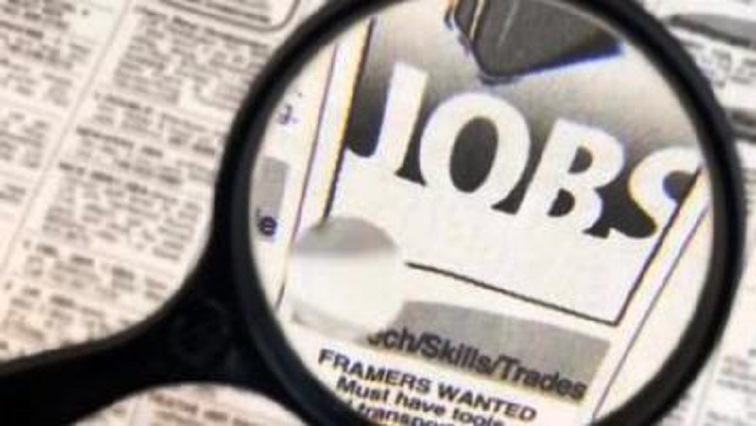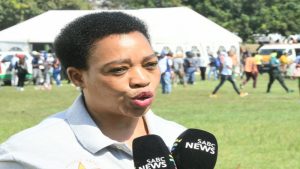South Africa’s unemployment figures reached record levels last year. The COVID-19 pandemic worsened an already poorly-performing economy.
In KwaZulu-Natal, the second biggest contributor to the national GDP, the situation is worse than the national average.
Nearly 5 out of 10 people of working age are unemployed or have given up looking for work.
35-year old Nozipho Mhlanzi, who stays with her sister in Pinetown, worked as a sales assistant at a store in the Gateway Mall at Umhlanga.
When the country went into hard lockdown in March, the store closed completely. As the lockdown eased, Mhlanzi was put on short-time, working only one week a month.
Mhlanzi says she was retrenched in December. “Two years back I got a job. I worked for a company in Gateway. So, I worked there for one year. I was a casual. I became permanent in February 2020. I was very happy that I got a permanent job. In March, boom, COVID. It was very hard for the company, they had to let us go in December. It was last in first out. So they had to let me go.”
While Mhlanzi is still applying for UIF, her sister is caring for her financially. Mhlanzi says right now she does not have money to send her two children back to school. She hopes her elderly parents, who are both on government pensions, will be able to pay the school fees.
Mhlanzi taught herself to do make-up by watching Youtube videos. She says when she was placed on short-time, she started doing make-up for others to earn a bit of money. Because of the lockdown restrictions on gatherings, Mhlanzi only manages to earn about R600 a month on average.
“I do get some clients, but not every day and not every month, because of COVID- 19 there are no weddings, no parties. I don’t do clients. I get clients every one to two months.”
Despite her dire situation, Mhlanzi encourages people who have lost their jobs to remain positive. “They mustn’t just sit down because they have lost their jobs. They must do something. Maybe sell amagwinya. If I can do makeup you can also do makeup. You can do something else.”
The coronavirus has left South Africans without jobs:
UIF payments
Every day, hundreds of people queue outside the Department of Labour’s central offices in the Durban CBD to apply for payments from the Unemployment Insurance Fund. “It is difficult, my children are starving. It’s like I never worked.”
This is the painful and harsh reality for 55-year-old David Dube. Having lost his job of 16-years, he feels like he failed his four children as a father.
“I am struggling to make ends meet – because I no longer have income. I’m just sitting at home. I was hoping to get some money from UIF but now I’m not receiving what is owed to me after all these years of working.”
Many people in the queue outside the Labour Department’s offices are frustrated because they have tried for months to get UIF. “I started applying for the UIF in October until now I’ve never received anything. We are struggling at the moment. I’m selling chips and peanuts to be able to buy bread for my family. Otherwise, I don’t have another source of income,” says one of the people.
Calls for the revival of the economy
The CEO of the Durban Chamber of Commerce and Industry, Palesa Phili, says all economic sectors are working with the provincial government on plans to revive the economy and save jobs.
“Our unemployment rate already grew by 1.8 %, so by the time this COVID came it just came and devastated matters, making it worse for unemployment and the economy of the province. Small, medium enterprises have really been hit hard. When you look at the tour operators, tour guards, bread and breakfast that are operating within our province, absolutely hurt by the pandemic.”
Phili has called on President Cyril Ramaphosa to deliver a meticulous economic recovery plan in his State of the Nation Address.
“For us, we would like to see President Cyril Ramaphosa in his address to really have a special detailed focus on the socio-economic issues that we are suffering as a country and a clear economic recovery plan that will ensure that the policies that he is going to outline will make sure that they will support the business community to be able to recover.”
A recent government survey on the economic impact of the coronavirus pandemic and the countrywide lockdown found that approximately three million people lost their jobs over the lockdown period.






